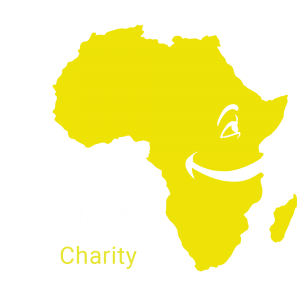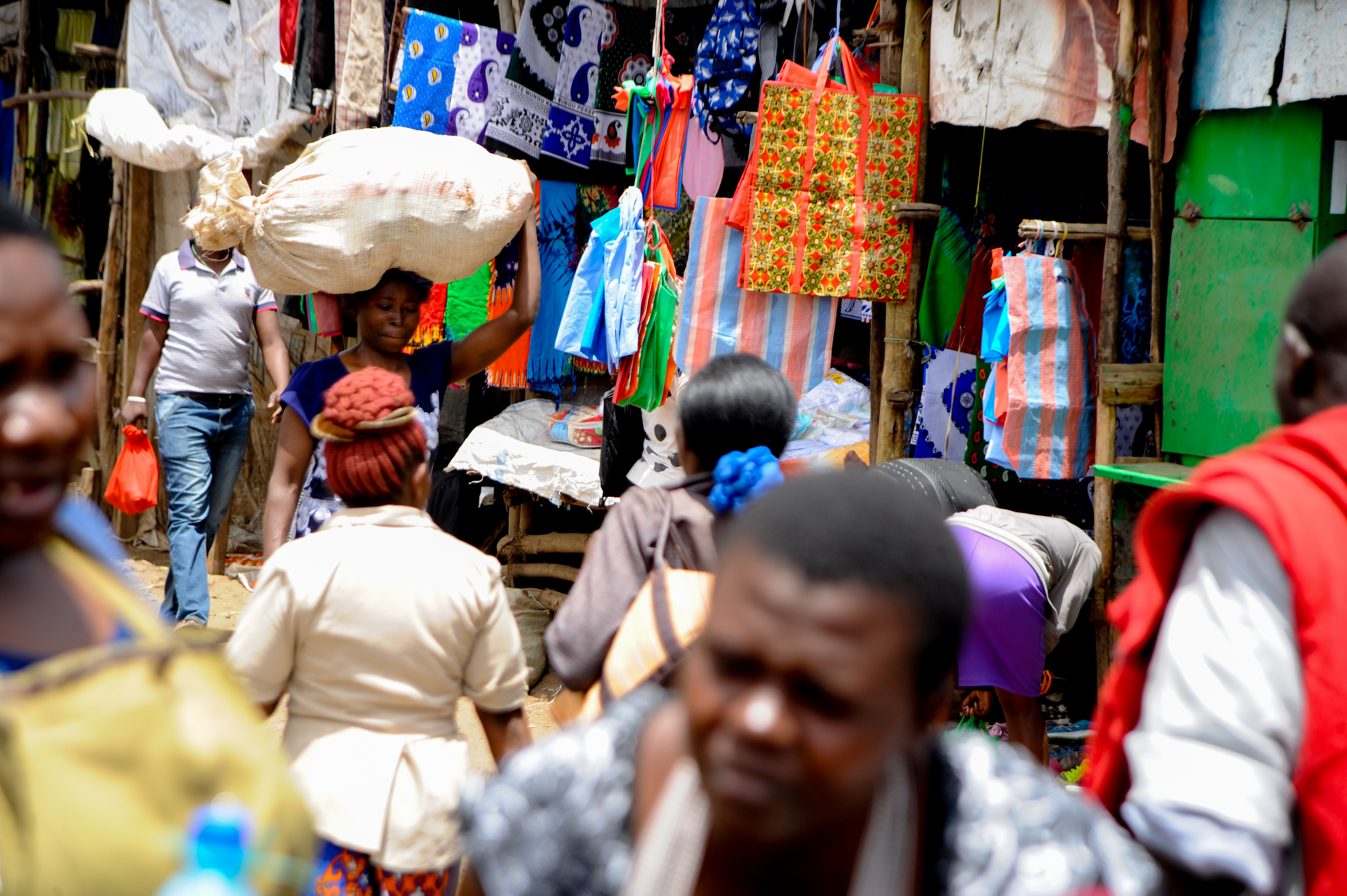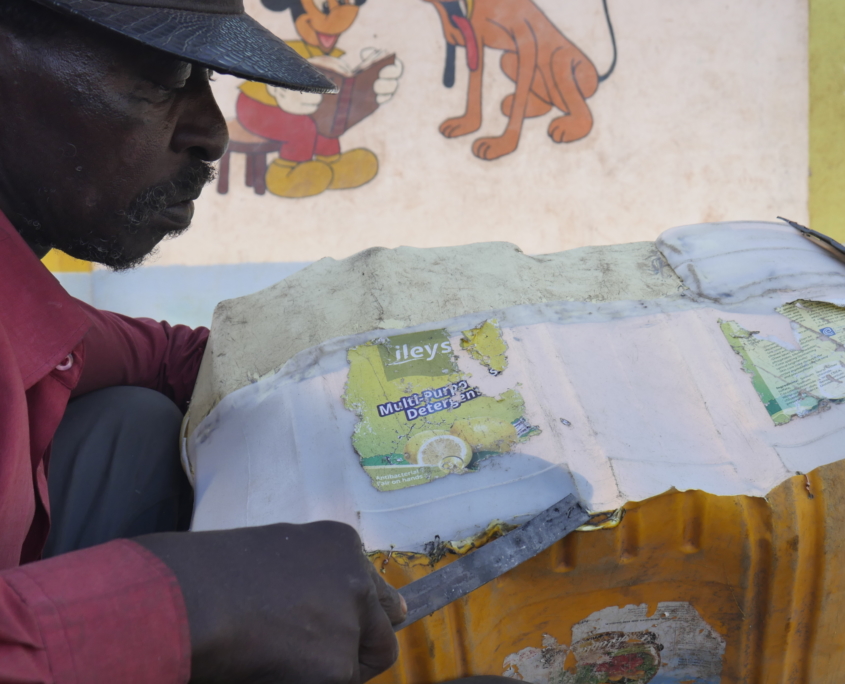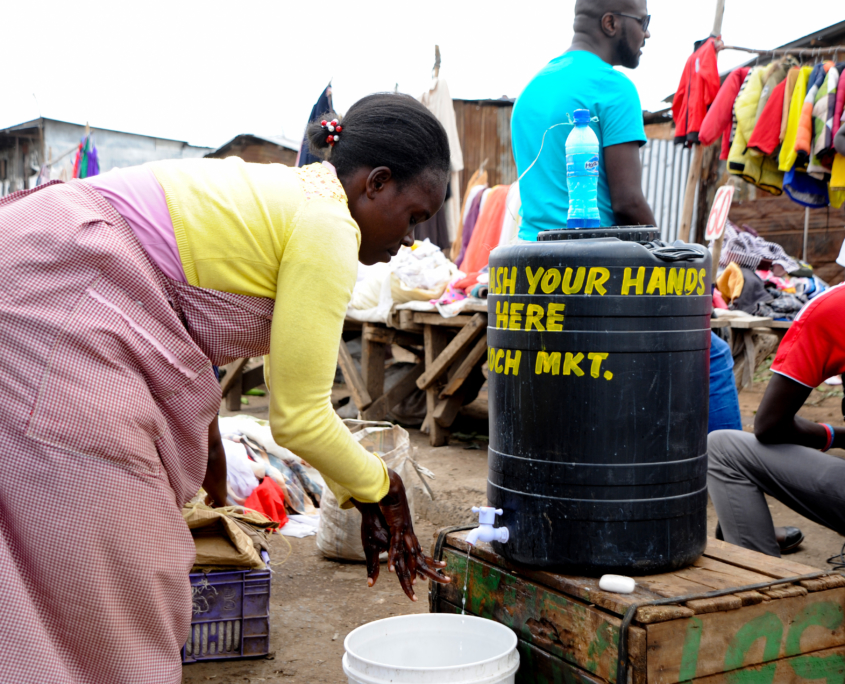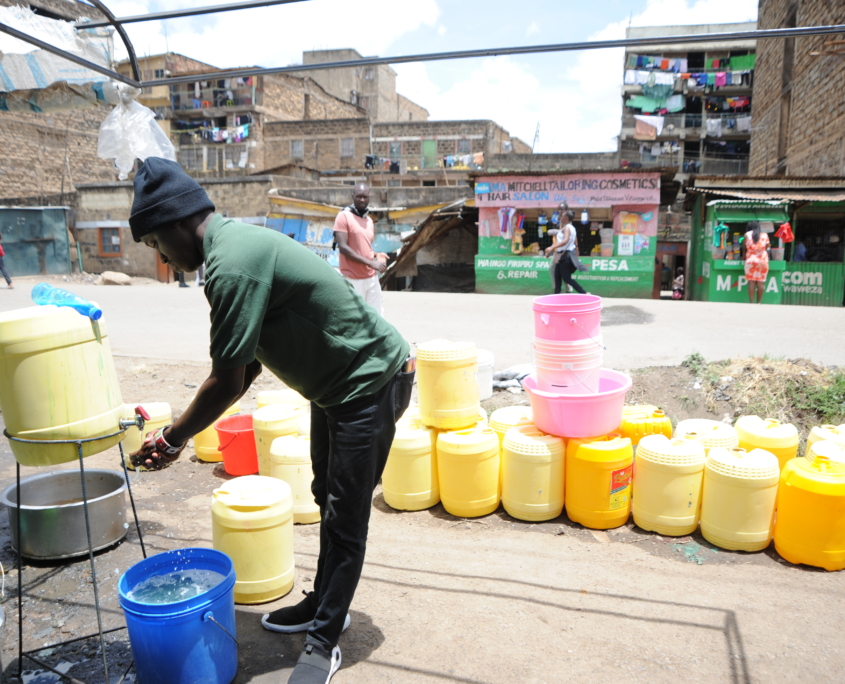Smiles Africa vs. Corona
The current extraordinary situation in which we all find ourselves makes us look anxiously to Kenya. The protection of the people there, especially in the slums, is crucial for the hope of a mild outcome of the pandemic.
Therefore, we have been in close contact with our team members on site for weeks to find out what we can do to help – while measures such as social distancing and wearing a protective mask can be effective in Germany, we have to start with the basics over there.
The most important starting point is the already weak hygiene system in Korogocho.
Keeping a distance, staying and working at home is not compatible with life in the slum because more than 300,000 people are living in a very confined space – sometimes even eight people in a single room. Above that, it is vital for the residents to carry out their sometimes very sporadic jobs just to get by every single day.
The only chance to slow down the spread of the virus is to help people to take better hygiene measures. Although it is recommended to wash their hands every 20 minutes, this is a big challenge for the people in Korogocho due to the water shortage. While there are already some initiatives to set up water points so that people can wash their hands more often, the number of those is far too small compared to the size of the community.
This is exactly where our project comes in: We want to install more water points at a reasonable price and thus make regular hand washing possible for all residents. Our Kenyan team tested how this can best be implemented in Korogocho and tried out different methods. Kizito has documented the process for us and we want to give you a direct insight into his report here:
THE RECYCLING
SOLUTION
“Our original plan was to recycle plastic materials and produce water tanks with a capacity of 50 to 150 liters.
The positive thing is that we would be able to create jobs on the one hand for people who produce the containers and on the other hand for artists who design the containers creatively.
This idea is very artistic and unique. However, we are faced with the great challenge of making it durable and designing a water container that can hold a larger volume of water which is why this plan unfortunately still requires a lot of time, brainstorming and research”.
THE COMPLETE SYSTEM
SOLUTION
“The next idea is to buy large new or used durable water tanks and adapt them to the individual conditions. This approach is less time consuming compared to the recycling method. However, the problem here is the higher cost of installing many water points, as even the individual canisters are rather expensive”.
Yet, our plan is to distribute as many water stations in Korogocho as possible, so that people pass them often and are reminded to wash their hands. The third method makes that possible:
THE MINI CANISTER
SOLUTION
“This alternative is to use smaller containers that can hold up to 20 liters of water and then connect them to a water station that holds a total of 60-100 liters (i.e. up to 5 canisters). With simple materials, the water points can be set up very quickly.
In addition, the height of the canisters can be individually adjusted so that children can wash their hands without any problems. This method is more cost-friendly than the complete system solution because a small canister costs only 120 KES (approx. 1.00 EUR). So, with 5 canisters, 100 liters of water and the installation, the costs amount to 1,800 KES (approx. 15.50 EUR) per water station.”
